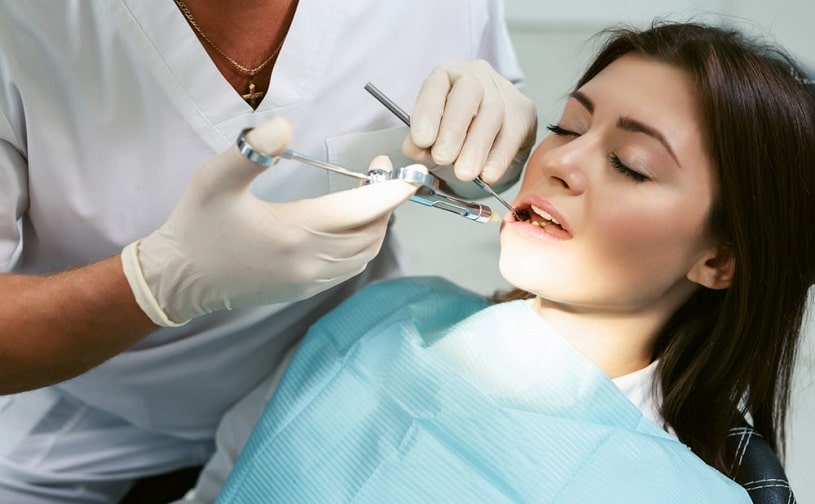Crystal meth has been proven to have a devastating effect on users’ dental health. Meth mouth refers to a severe tooth and gums disorder that is due to chronic methamphetamine addiction.
Table Of Contents:
According to research, those who use methamphetamine are twice more likely to have untreated caries, 2 or more decayed, filled, or missing teeth than those who don’t take the drug. Besides, women are at a higher risk of tooth loss than men.
What Is Meth Mouth?
Methamphetamine abuse wreaks havoc on the dental health of the user. “Meth mouth” is a term used to describe the characteristic severe dental decay common in users.
Methamphetamine is acidic and corrosive in nature. Additionally, the toxins in the drug can damage the teeth. The constant grinding of teeth is commonly found in users of the drug. Improper diet renders the immune system of methamphetamine addicts ineffective against these conditions. A combination of dental caries, infections, swellings, pain, chipped and loose teeth, and periodontal disease resulting from dry mouth, teeth grinding, and the weak immune system gives rise to meth mouth.
What Causes Meth Mouth?
Methamphetamine affects the salivary glands by shrinking the blood vessels of the oral cavity, which gives rise to a dry mouth. Dryness due to chronic addiction is the main culprit behind this condition. When a mouth becomes excessively dry, the acid levels inside skyrocket, acting on the teeth and eating them up. This makes the users take more sweet liquids to cope with the dry mouth condition. Methamphetamine users usually disregard personal hygiene habits such as brushing teeth and flossing. The combination of sugar and bacteria in the oral cavity leads to fermentation, which forms cavities and gives rise to infections. Poor oral hygiene further deteriorates this. Consequently, abusers end up experiencing tooth loss.
Researchers also suggest that prolonged periods of dry mouth increase drug cravings for artificially sweetened drinks. Due to this, the tooth destruction process becomes even more aggressive.
What Does Meth Do To The Teeth?
There is a certain order to how meth affects dental health, causing irreversible damage in as short a period as a year. First, a user may notice staining, where teeth begin to change color. Next comes decay, when you may notice your teeth slowly changing shape and eventually falling out. Tooth loss is part of the adverse effects associated with meth use, unfortunately.
This process does not take a long time, and there is nothing you can do to prevent it other than quit the drug’s use.
Methamphetamine Indirect Influence On The Teeth
The side effects of meth go hand in hand with the drug to create a dangerous environment for the teeth. Due to the high people experience, which involves hyperactivity and fast thoughts, it is not uncommon for people to neglect their hygiene altogether, as it simply is not a priority while under the influence. Brushing teeth is not high on the list while on meth. Moreover, addicts start picking on their skin, which leads to sores on the body and face. With a meth high lasting anywhere from 8-24 hours, and users often chase away withdrawal symptoms with another dose, it is not uncommon for the dental health to go ignored for days.
Another side effect of the drug can be anxiety, paranoia, and stress, which for many results in the habit of grinding their teeth or clenching their jaw. This can cause further damage. And lastly, the dry mouth effect of methamphetamine often leaves users craving sugary beverages to quench the thirst. As may be expected, a healthy and nutritiously balanced diet does not often go hand in hand with a meth addiction as well, leaving addicts lacking nutrients to help fight for oral health.
If a user also smokes tobacco or abuses other drugs, the risk of such complications goes up by a huge margin. Regrettably, many abusers are habitual smokers or tobacco users.
Meth Mouth Symptoms
Needless to say, the loss of teeth is the most visible sign indicating the ill-effects of meth mouth. If one was lucky enough and managed to retain them, they will most likely be rotten.
Other complications may include lesions on the mouth’s inner surface, prevalent gum diseases, and teeth grinding (Bruxism). Some patients who have abused it for prolonged periods are found to have difficulty chewing food. This may occur due to increased rigidity of the muscles in the oral cavity.
Meth mouth may not be noticeable to others at first, as various things could cause the symptoms, making it difficult to point the finger squarely at methamphetamine use. With the progression of time, the symptoms become more severe and leave people looking like the poster child for anti-meth campaigns. Unfortunately, this journey does not take more than a year after a person starts abusing meth. The early signs of meth teeth are distinctly visible. To stop the process before it goes too far, it is helpful to know the signs and symptoms. They Include:
- Dry mouth caused by the drug drying out the salivary glands
- Bad breath
- Bad oral hygiene
- Cavities caused by the harsh acids of the mouth
- Red and swollen gums
- Grinding or clenching teeth
- Craving sugary drinks
- Black stains on the tooth
- Tooth fractures
- Dental pain
- Yellow coat on the tooth
As Drug Abuse Intensifies, Meth Users Tend to Exhibit More Dental Problems, and The Teeth Become:
- Stained and discolored
- Rotting
- Missing, that is the result of severe decay
Moreover, gum disease that causes tooth loss may develop.
Treatments for Meth Mouth
As a matter of fact, the first thing one can do to salvage the teeth is to stop using the drug, which might not be possible if the addiction has already taken charge of the body and the mind. For this reason, consider seeking professional help to start the detox process and rehabilitation therapies.
Unfortunately, there is no cure for meth mouth. Once the teeth are lost, no one can get them back. The treatment will be aimed at saving those that were not severely damaged due to the drug use and still can be cured. It might include fillings for cavities, mouth guards for teeth grinding or clenching, and veneers.
However, certain measures may help to prevent further damages to dental health.
Here Are Some Tips:
- Schedule an appointment with a dentist. Then, communicate clearly about the condition and expected outcome. Make a list of questions to ask and take note of what they suggest.
- Maintain proper hygiene by brushing regularly. Also, avoid sugar-loaded foods or drinks.
- Get the damaged tooth removed through surgery if a dentist recommends it. Ask them if fillings or dentures could be options.
- If one has problems with teeth grinding, wear a mouthguard.
Seeking Help for Methamphetamine Addiction
Stopping the abuse not only protects the smile but also offers a happy and sober life. To know more about meth addiction, or any other type of dependency, talk to the experts. Addiction counselors can suggest ways to fight addiction and help to come out clean. Knowing the dangers may prevent users from developing an addiction and overdosing on methamphetamine. Rehabilitation centers have a team of qualified health professionals who can make a journey to sobriety swifter and easier.
Page Sources
- National Institute on Drug Abuse. What is Meth Mouth? 2015. https://teens.drugabuse.gov/node/40770
- American Dental Association. Methamphetamine use and oral health. 2005. https://www.ada.org/~/media/ADA/Publications/Files/patient_55.ashx
- V. Shetty, L. Harrell, J. Clague, D.A. Murphy, B.A. Dye, and T.R. Belin. Methamphetamine Users Have Increased Dental Disease. 2016. https://www.ncbi.nlm.nih.gov/pmc/articles/PMC4914865/
- Vivek Shetty, Lauren Harrell, Debra A. Murphy, Steven Vitero, Alexis Gutierrez, Thomas R. Belin, Bruce A. Dye, and Vladimir W. Spolsky. Dental disease patterns in methamphetamine users: Findings in a large urban sample.2015. https://www.ncbi.nlm.nih.gov/pmc/articles/PMC5364727/
- Department of Health and Human Services. Meth Mouth. https://www.maine.gov/dhhs/mecdc/population-health/odh/documents/meth-mouth.pdf
- Dr. Lani Daga, Dr. Tay Keng Kiong, Dr. Kok Tuck Choon. Effects of drug abuse on oral health. 2014. http://www.myhealth.gov.my/en/effects-of-drug-abuse-on-oral-health/

 Authored by
Authored by  Reviewed by
Reviewed by 


